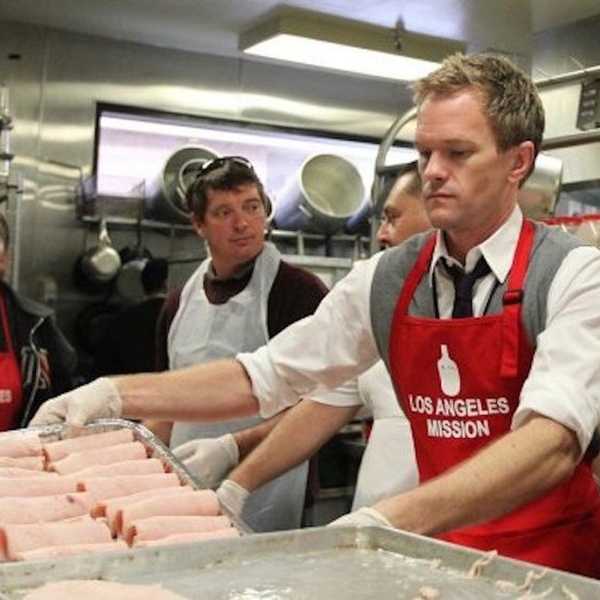It has been said to me: “If you want to meet the real Africa, go look at the roads and go see the hunger of her people.” My hope with this article, which will be my last, is to illustrate some of the realities of life here in Burkina Faso. Have no fear. This is not going to be a sad, “give now to avoid feeling guilty” infomercial. However, I do want to spread the word because I think the realities of life for the Burkinabe do not need to remain so. God is working in Burkina Faso, and lives are being changed.
Therefore, without further preamble, let’s talk about roads and hunger. The cover photo was taken while standing on the main road used to travel to the village where I serve. Technically, it is a photo of a pothole. My friend standing inside the hole is six feet two inches tall. While a this is definitely the largest failure in the road surface that I have witnessed here, many others are not much smaller, and riding a moto on the roads here is fun and engaging because of all the holes one must dodge. Furthermore, even though the roads cannot stop motos, the delivery trucks are a different story. It is not too uncommon to see these massive machines floundering in a mud pit or forced to drive through a farmer’s field while trying to make their runs. Such events, if consistent, can raise the price of the goods shipped by truck and can potentially stop the vital flow of cargo into and out of the villages.
So what is the problem with the roads? Namely, they are made of dirt and cross seasonal rivers. During much of the year here, there is no rain, and a nice, hard-packed, dirt road is perfectly fine. The rain would not even be so much a problem if it was not for the fact that when it shows up it arrives in a flood. A gentle soothing shower would be great. However, storms are the norm, and when they finish, there are large rivers and storm surges where once there was only sandy clay. Then, it is only a matter of time, and a short amount at that, before the loose soil starts eroding away. Roads are no different than the surrounding land. Even if the surface is extremely hard packed and pressed together, nothing stops the might of nature. If the road surface does not erode, the subsurface will be undercut and eaten away until huge, unexpected holes appear. Ask anyone who has ever tried, and they will tell you that, if a river wants to flow one way, there is not much you can do to stop it.
Well, that is pretty bleak, but there is some good news. People want to fix the roads, and communities will organize to do so. During my time as a short term missionary, I have been working at Open Door Development, which operates through SIM, and I have seen and heard stories of the huge crowds of people that will come from a village to help repair the roads. At first, ODD had to organize the event. But since then village leaders will do most of the planning, and ODD’s job is to bring what equipment and expertise they have. Still though, without access to quality material and heavy machinery, the best people can do is repair the damage. We can treat the symptoms but not the problem. Treating symptoms is well worthwhile though, and if nothing else, the people’s realization that they can fix their roads and improve their environment is well worth the effort and work.
Now I would like to discuss the hunger of the people. This is difficult as the problem is both more complex and less well known to me. Simply put, the combination of long seasons without rain and inefficient farming techniques results in low crop yields and poor nutrition. Even if one can grow a lot of one food, nutrition is still a problem if there is no diversity in diet. The best solution to this issue is education. Simply giving food makes people dependent and degrades their pride, but teaching makes them the heroes because they are working and discovering how to meet their own needs in their own way. ODD is working to provide this education and to combat the final complication that exacerbates the issue even more. Here, everyone farms. It is a necessity of life that a family raises its own food, and this has created a stigma against farming as a profession. This stigma sees choosing to be a farmer as having failed in an attempt to earn a better career. How do you teach and improve farming techniques when no one wants to be a farmer? It is a challenging issue.
ODD works hard to educate about different methods to improve crop yields and to diversify production, and some of it is really interesting. After receiving the tour and briefing of operations, I kind of wanted to try my hand at raising a garden see if these new ideas worked. However, it is slow progress as, even if they want to farm for a career, people must be completely convinced of the success of a new way before they try it. At first it seems crazy to use techniques that have been shown to produce less, but think about it. If your food for the year depended on your success, how eager would you be try something different? Have you ever made a mistake that you did not notice until it was too late? Imagine if too late was two months later and if the price of not noticing sooner was not enough food. The method that worked for your parents and their parents and their parents’ parents is starting to look a little better now, right? It is not hopeless though, and as ODD agricultural school becomes more well known, improvements are being seen. It is an uphill battle, but even uphill, it is a battle that moves forward.
That is where I would like to stop for this article. There are always more problems to discuss. Every person, whether in Burkina Faso or in America, has hopes and dreams along with trials and tribulations, and the more one really meets and knows people, the more problems one will hear about and want to help solve. However, compassion fatigue is a very real thing. I do not want to burden you with guilt or shame, but I do want to share with you and maybe rouse your curiosity. This is only one place among many dark places in the world. Yet, maybe this story has resonated with you. Maybe you will feel a tug to do something. If so, a simple first step is following ODD’s facebook page or contacting SIM. Who knows what work God might have for you in the forgotten places of the world? But, as a wise friend once said, they are “certainly not forgotten by God because he sent you!”





















